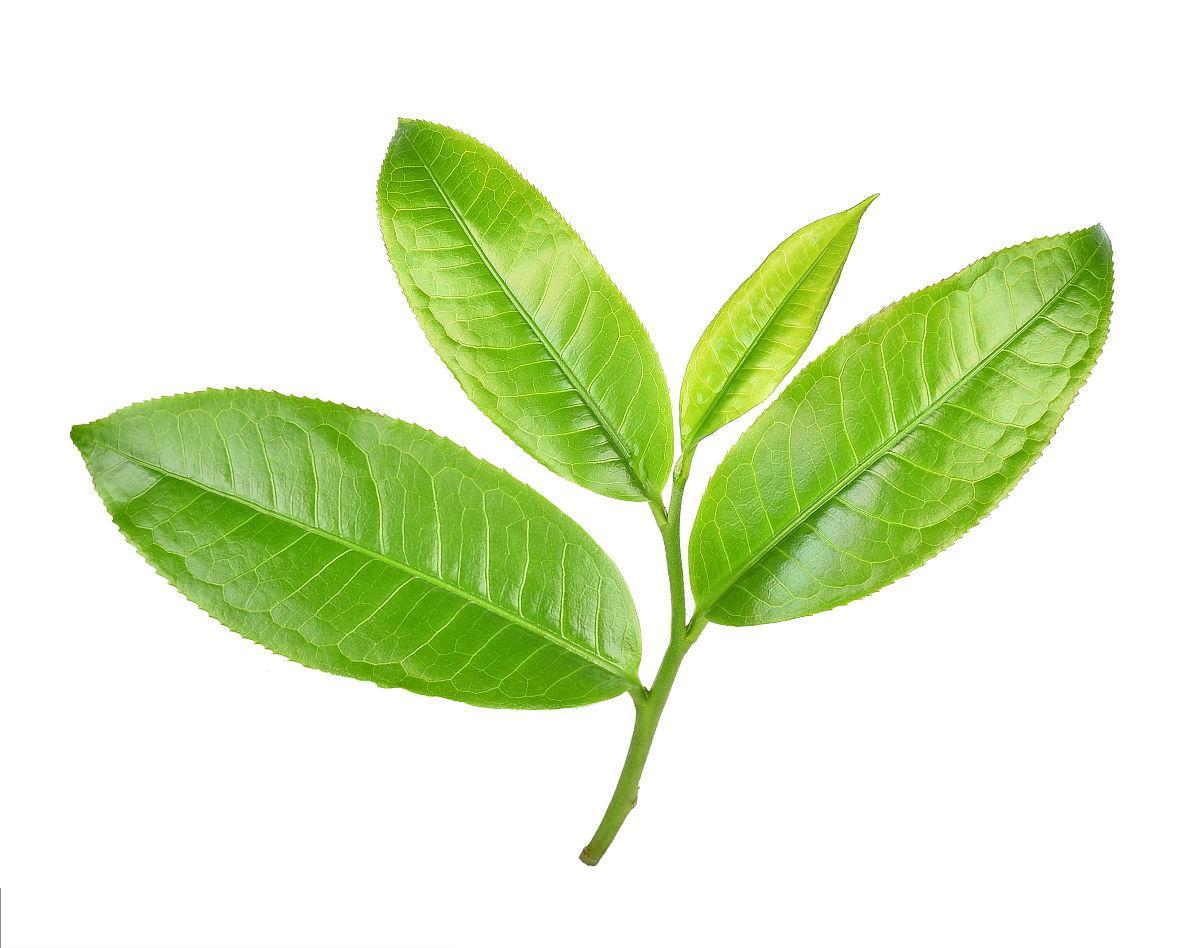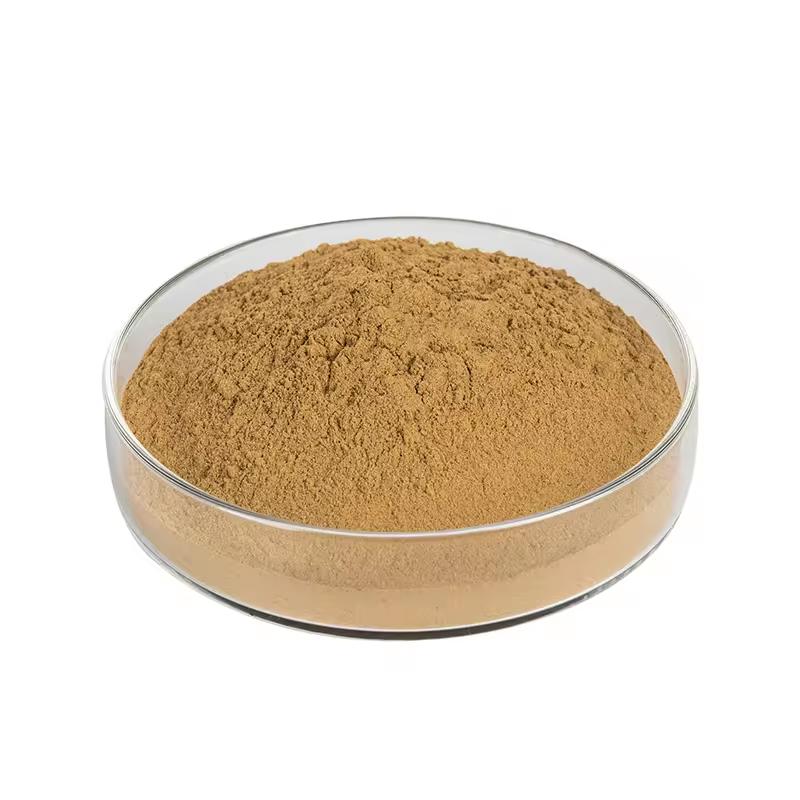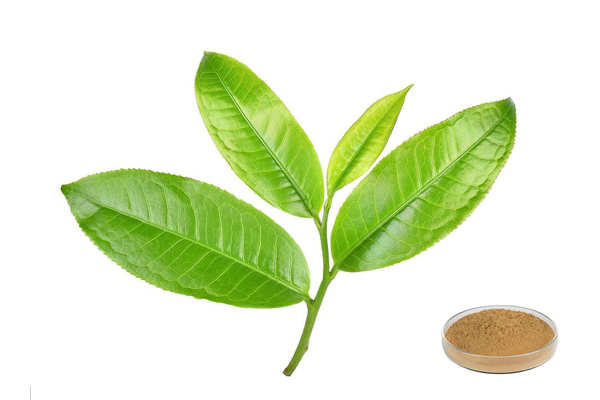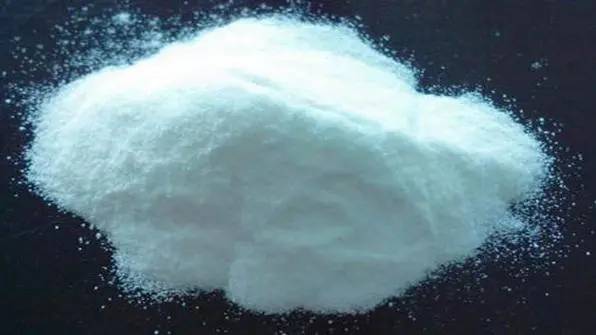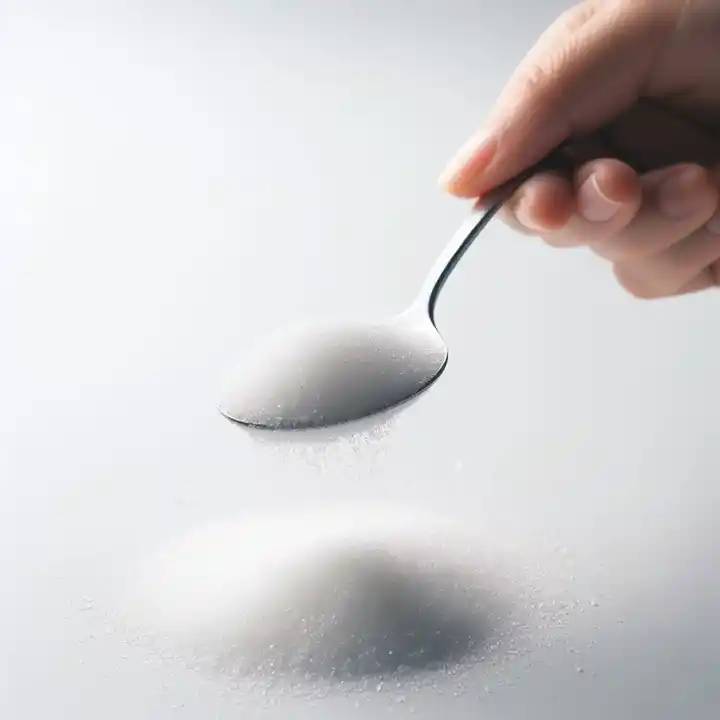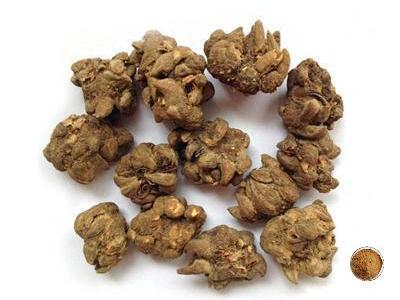Extracto de té verde 40% L polvo de teanina
Fuente: hoja de té verde
Principio activo: l-teanina
Especificación :40%
Método de ensayo :HPLC
Aspecto: polvo fino de color marrón
Residuos de plaguicidas: cumplir con la norma (CE) n º 396/2005
- descripción
- Hoja de datos
- Certificado de certificado
-
¿Qué es el extracto de té verde L teanina en polvo?
La l-teanina es un aminoácido característico del té, con la fórmula química C7H14N2O3, que representa 1-2% en peso en el té seco. La l-teanina fue aislada por primera vez del té verde en 1950. En la presencia de más de veinte tipos de aminoácidos en el té, la teanina representa aproximadamente del 50 al 60% del total de aminoácidos en el té; Se ha encontrado que, a excepción de la presencia de trazas de teanina en las ciruelas, setas, té de aceite y otras plantas, la teanina todavía no se ha encontrado en otras plantas. La teanina es un compuesto amida, llamado químicamente: n-etil-l-glutamina.
La teanina Natural es de tipo l, cristales blancos puros con forma de aguja, punto de fusión 217 ° C ~ 218 ° C, rotación óptica específica [−] D20 = 0.7 α, extremadamente soluble en agua, insoluble en etanol y disolventes orgánicos como éter, la solución acuosa es ligeramente ácida, con un aroma de caramelo y similar al sabor fresco y fresco de MSG, el umbral del sabor es de 0.06%.
La tecnología de Green Spring suministra extracto de té verde natural 40% L de polvo de teanina, que se produce mediante el uso de equipos avanzados de separación de membrana y concentración de membrana, con el aroma de té verde natural, de buen color, la solución clarificada después de la solubilidad en agua, sin precipitación, adecuado para la adición de bebidas.
Fundada en el año 2000, Green Spring Technology es una compañía biotecnológica líder en China, dedicada a la investigación y desarrollo del suministro de extractos de plantas naturales, seguros y orgánicos. Producimos de acuerdo con ISO, HACCP, y otras normas de calidad, y cumplir con la UE EC396, UE 2023/915, y los más altos estándares de residuos de disolventes. Greenspring tiene 7 certificados, y 7 patentes y ha sido galardonado con Halal, Kosher, COSMOS, BRC, IFS, FDA, ISO, y muchos otros certificados. Los informes de pruebas autorizados de terceros están disponibles.
Especificaciones:
Nombre del producto
Extracto de té verde
Nombre latino
Camellia Sinensis
CAS No.
3081-61-6
fuente
Hoja de té verde
Principios activos
l-teanina
especificación
40%
Método de ensayo
HPLC
apariencia
Polvo fino de polvo
Residuos de plaguicidas
Cumplir con la norma (CE) n º 396/2005
Reglamento:
Se ajusta a la normativa de la UE.
¿Busca un presupuesto?Benefits:
Sedative Function
Tea contains more caffeine with a stimulating effect, but people feel calm and relaxed when drinking tea, not like drinking coffee is excited and hyperactive. In addition to the caffeine and other substances complex, its absorption is slow, which is mainly the theanine sedative effect. Research has proved that theanine has an antagonistic effect on caffeine excitement, when the amount of theanine up to 1740 mg/kg, can significantly inhibit caffeine-induced excitation of the nervous system. Recently, some scholars have used electroencephalograph evaluation method to further determine that theanine and caffeine in almost the same molar concentration, caffeine stimulation can be antagonistic.
Lowering Blood Pressure
The regulation of blood pressure is achieved mainly through the increase or decrease of catecholamines and 5-hydroxytryptamine in the central and unperipheral nervous system. The administration of murine theanine can reduce the level of 5-hydroxytryptamine, resulting in a 5-hydroxytryptamine. synthesis in the brain is reduced as well as increasing its breakdown in the brain. When spontaneously hypertensive rats (SHR) were given different doses of theanine blood pressure decreased in a dose-reflective relationship, with a significant decrease in blood pressure observed in the high-dose group. However, even the highest dose of theanine (2000 MG/KG) did not change the blood pressure of WISTAR rats. Glutamic acid, which is structurally similar to theanine, was not found to have a blood pressure-lowering effect.
Affecting Neurotransmitters Changes in the Brain
Dopamine (DA), known in English as dopamine, is a central neurotransmitter that makes people excited and happy. Theanine causes a significant increase in the mitochondrial neurotransmitter dopamine in brain cells, which is the precursor of adrenaline and noradrenaline, and is an important substance for conveying the level of excitement of nerve cells in the brain, and its release greatly affects a person's mood. Changes in neurotransmitters also affect learning ability, memory, and so on. After taking theanine for 3-4 months, rats have improved learning ability, can grasp the essentials in a shorter period, and have a stronger memory for dangerous environments than the control group. Therefore, theanine can also improve learning ability and memory by regulating neurotransmitters.
Enhances Immunity
According to research in the United States, tea can enhance resistance, which may be related to theanine. Professor Jack Bukowski's research group at Harvard Medical School, through tests on volunteers, proved that theanine can enhance the human immune system by regulating gamma-delta T immune cells and resist the invasion of disease-causing microorganisms, such as viruses, bacteria, and fungi, and it can even increase the body's resistance to prevent diseases by five times. Scientists predict that theanine may one day be used to develop disease-fighting drugs.
Applications:
In the Food Field:
Theanine is easily soluble in water and can be added to baked and frozen snacks, etc. Research has confirmed that it can be added to sweets and various beverages to obtain a good calming effect; it can be added to food as a functional ingredient to develop functional food to relieve nervousness and benefit the brain. Research has confirmed that theanine can be added to sweets and various beverages to obtain a good sedative effect. In Japan, theanine has been widely used in chocolates, jellies, puddings, chewing gums, health teas, and various refreshing drinks.
Theanine is the main component of the fresh and refreshing taste of tea, theanine can interact with sugar to form volatile aroma components, but also can alleviate the bitterness of caffeine and the bitter and astringent flavour of tea polyphenols, adding a certain amount of theanine in the production of tea beverages can significantly improve the quality and flavour of tea beverages. Theanine can not only be used as a modifier of the flavour of green tea but can also inhibit the bitter and spicy flavour in other foods. For example, cocoa drinks and wheat tea have a unique bitter or spicy taste, adding sweeteners will have an unpleasant taste, such as 0.1 % of L-theanine instead of sweeteners, the results show that the beverage flavour greatly improved.
-
Get Your Free COA


 inglés
inglés francés
francés español
español ruso
ruso coreano
coreano Japonés japonés
Japonés japonés



